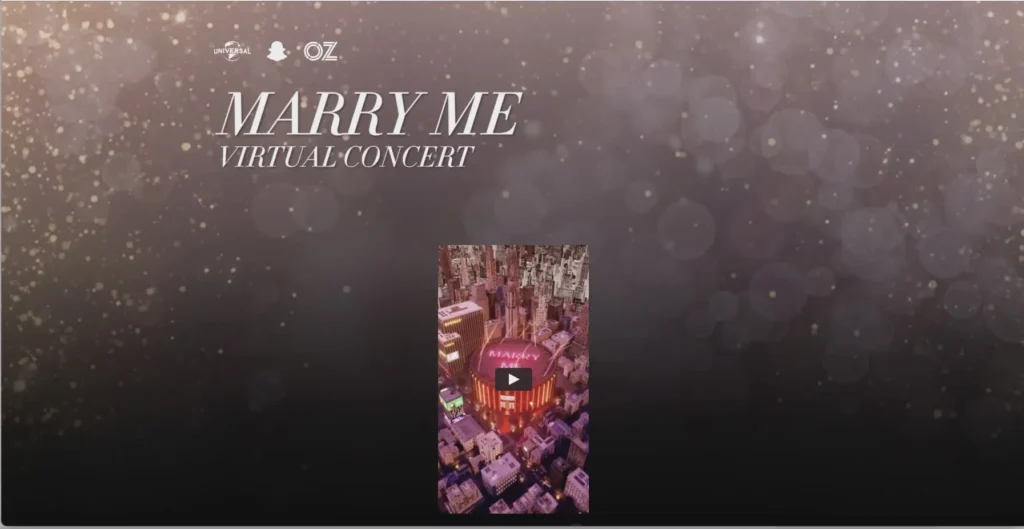
Jennifer Lopez has not released a studio album since AKA back in 2014 which, in digital marketing terms, is about six lifetimes ago. Her new album, released at the start of February, is not exactly a solo album as such: it’s the soundtrack to the Marry Me film which she stars in alongside Colombian star Maluma. Some songs on the soundtrack are Lopez solo, some are Maluma solo, some are them duetting, one has Lopez duetting with TELYKast and there’s another that’s just credited to Coolidge Crew. It’s all terribly confusing.
A multi-act film soundtrack did the Bee Gees no harm in the 1970s, but a list of different names in the sleeve notes alone does not make a marketing campaign.
The more interesting part of what they did to launch the soundtrack and the film was to have Lopez and Maluma perform a concert in Snapchat. Except, it wasn’t on Snapchat itself, rather on its own dedicated site, done with the support of Snapchat.
It takes place in a virtual world where they (and a vast array of others) show up in Bitmoji avatar form, although Lopez’s avatar was rendered in such a way as to make her look like Lady Penelope Creighton-Ward from Thunderbirds. This was probably not intentional.
Those who signed up in advance, using their Snapchat login details, could appear virtually as their Bitmoji avatar in the performance. During the concert, there were a number of interactive effects the viewers could avail of, such as starting a wave and setting off a virtual laser effect.
It all had a bit of a preamble where it was presented as a red carpet event and you could watch the stars arrive. During the show, it cut between the performance on stage and fans dancing in the crowd in their Bitmoji incarnations.
The experience itself was fun and endearingly aware of its own inherent ridiculousness (or at least we hope it was); but the bigger point here is that it potentially marks more serious ambitions for Snapchat in the metaverse rather than letting Facebook and Fortnite steal most of the glory here.
It remains to be seen what Snapchat will do here to further build on this, but it is interesting that it chose music as its entry point for this early experiment.